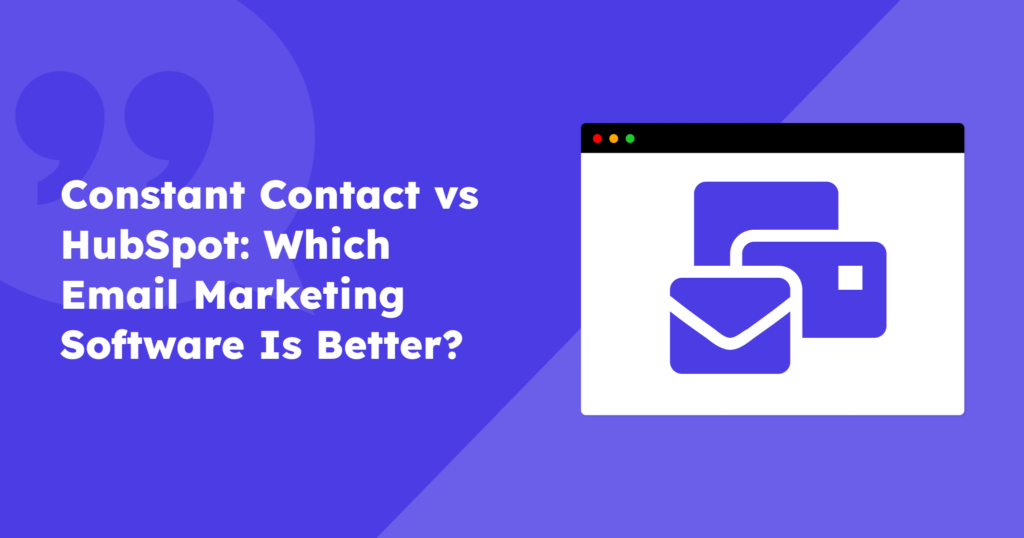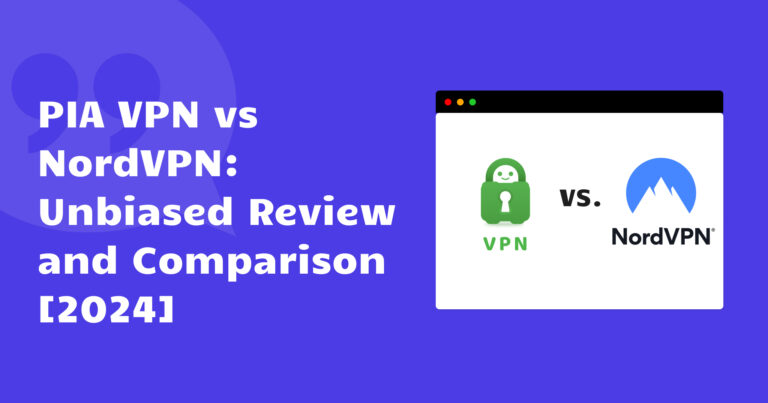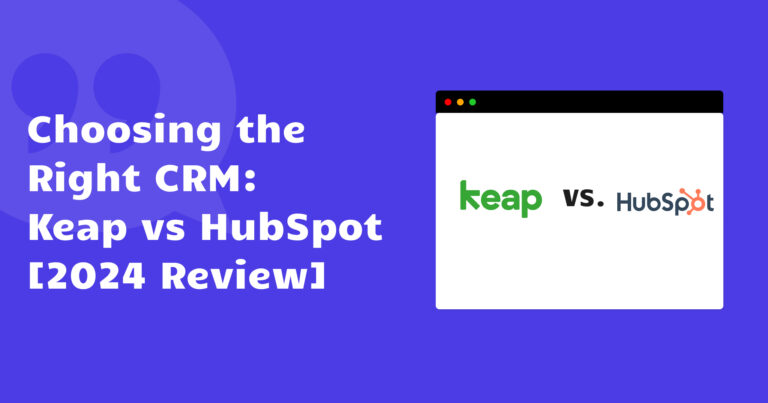Email marketing has become the heartbeat of modern business communication, allowing companies to directly connect with their audience in a personalized and efficient way. In the battle of Constant Contact vs Hubspot, choosing the right email marketing software is akin to selecting the perfect tool for a job—essential for success.
In this article, we delve into the world of email marketing, focusing on two prominent players: Constant Contact and HubSpot.
Table of contents
Imagine this: a tool that enables businesses to reach their customers directly, share valuable content, and build lasting relationships. That tool is email marketing.
As the digital landscape evolves, email remains a reliable channel for businesses to engage with their audience. Whether it’s promoting a new product, sharing updates, or fostering customer loyalty, email marketing continues to be a cornerstone of effective communication.
With the myriad of email marketing software available, choosing the right one can be overwhelming at first considering how many new solutions pop up each day.
The software you pick influences how well you can craft and deliver your messages, manage your contacts, and measure the success of your campaigns. It’s not just about sending emails; it’s about creating a seamless and impactful communication strategy.
Constant Contact and HubSpot stand out as popular choices. Both platforms offer unique features designed to streamline the email marketing process.
We will explore together the features, benefits, and real-world applications of both of these solutions.
⚠️ Note: If you want a TLDR version of this article, below is a very useful table with everything you need to know.
| Feature | Constant Contact | HubSpot |
| Primary Focus | Email marketing | All-in-one marketing platform |
| Features | Email marketing, website builder, landing pages, social media scheduling, basic reporting | Email marketing, website builder, landing pages, social media scheduling, CRM, blog, SEO tools, marketing automation, lead nurturing, advanced reporting |
| Ease of Use | Easy to learn and use, even for beginners | More complex than Constant Contact, but still user-friendly with extensive training resources |
| Pricing | Starts at $20/month for 0-500 contacts | Starts at $50/month for 1,000 contacts |
| Scalability | Suitable for small businesses and solopreneurs | Suitable for businesses of all sizes |
| Support | Email and phone support | Email, phone, chat, and online resources |
| Integrations | Integrates with a variety of third-party apps | Integrates with a vast array of third-party apps, including popular CRM and marketing automation platforms |
| Reporting | Basic reporting on campaign performance | Advanced reporting with detailed insights into campaign performance, website traffic, and lead generation |
| Marketing Automation | Basic automation features (e.g., drip campaigns) | Advanced marketing automation features with workflows, lead scoring, and personalized content |
| CRM | Limited CRM functionality (e.g., contact management) | Robust CRM with lead management, deal tracking, and customer service tools |
| SEO Tools | Basic SEO tools (e.g., website optimization recommendations) | Advanced SEO tools with keyword research, competitive analysis, and backlink tracking |
| Social Media Management | Basic social media scheduling | Advanced social media management with publishing, engagement, and analytics |
| Landing Page Builder | Drag-and-drop landing page builder with limited design flexibility | Drag-and-drop landing page builder with more design flexibility and A/B testing |
| Website Builder | Easy-to-use website builder with limited customization options | More powerful website builder with more customization options and design flexibility |
Constant Contact: Features and Benefits
Constant Contact is more than just an email marketing tool; it’s a comprehensive platform designed to simplify your marketing efforts and enhance your communication with your audience.
It’s an easy-to-use platform that caters to businesses of all sizes, making it a popular choice for those who want a user-friendly experience without compromising on functionality.
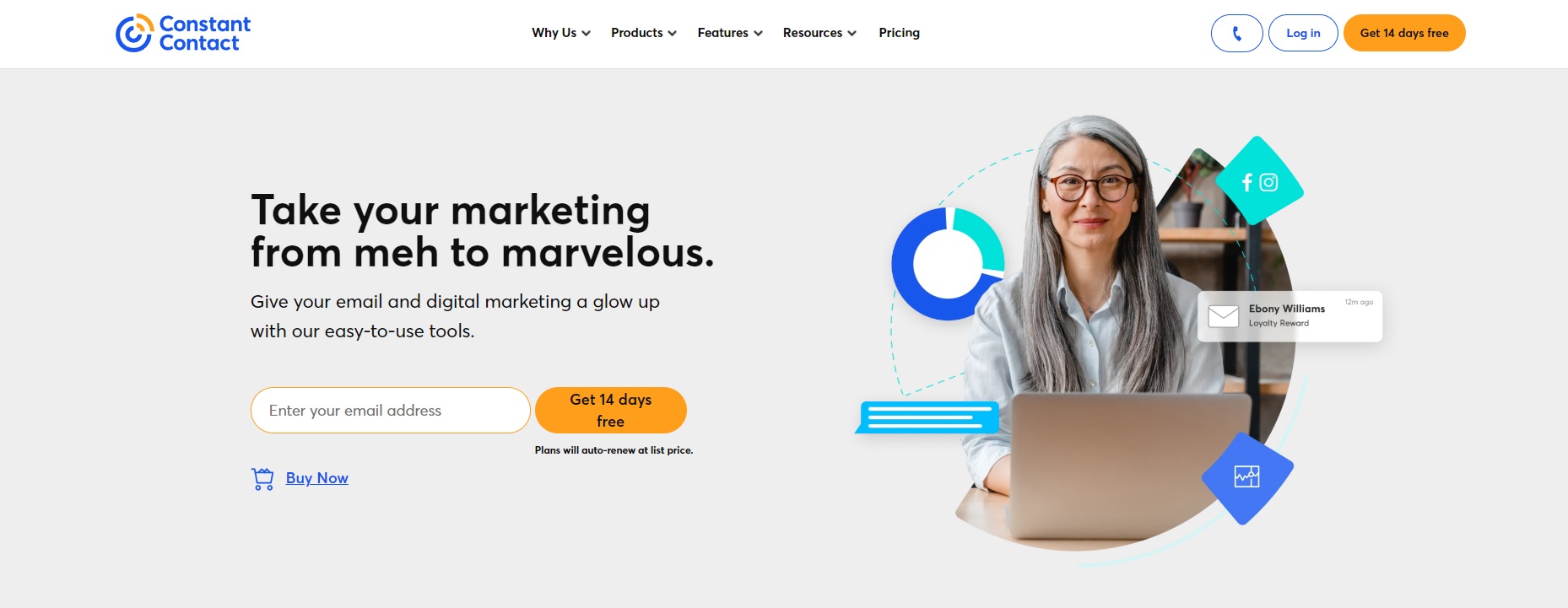
Key Features and Functionalities
✅ Email Campaign Creation and Customization:
- Constant Contact provides a range of customizable templates, allowing you to create visually appealing email campaigns without any design expertise.
- Drag-and-drop functionality makes it easy to add images, text, and buttons to your emails.
- Simple customization tools enable you to match your brand’s colors and style for a professional look.
✅ Contact Management:
- Effortlessly manage your contacts with Constant Contact’s user-friendly interface.
- Create segmented lists to target specific groups, ensuring your messages reach the right audience.
- Keep track of contact engagement and tailor your campaigns based on recipient behavior.
✅ Analytics and Reporting:
- Gain valuable insights into the performance of your email campaigns with Constant Contact’s analytics tools.
- Track open rates, click-through rates, and other key metrics to understand what resonates with your audience.
- Use the data to refine your future campaigns for maximum impact.
These are all very solid features. Let’s also take a look at the pros and cons of using Constant Contact. I’ve made a table so it’s easier to follow and understand:
| Feature | Pro | Con |
| Ease of Use | Easy to use design | Limited design flexibility |
| Features | Wide range | Limited automation |
| Deliverability | High | Limited reporting |
| Support | Excellent | Can be expensive |
| Integrations | Many | |
| Pricing | Affordable (small businesses) | High (large contact lists) |
Pricing plans
Constant Contact offers a few pricing options for its email marketing tools. Here’s a breakdown of the different plans and their pricing:
Lite:
- Starts at $12/month (Price based on number of contacts)
- 1 user, 1 GB of storage
- Monthly email sends: 10x your number of contacts
- Self-service, live chat & phone
- Drag and drop email templates
- AI content recommendations
- Polls and surveys
- Reporting
- Inbox preview ($10/month add-on)
- Automated welcome emails
- Contact management
- And more…
Standard:
- Starts at $35/month (Price based on number of contacts)
- 3 users, 3 GB of storage
- Monthly email sends: 12x your number of contacts
- All the features of the Lite plan, plus:
- Scheduled emails
- A/B testing
- Reach and engagement reporting
- Newsletter archive
- Resend to non-openers
- Contact activity segmentation
- Payments
- Sell products and services
- Social media post schedule
- 300+ integrations
- And more…
Premium:
- Starts at $80/month (Price based on number of contacts)
- unlimited users, 25 GB of storage
- Monthly email sends: 24x your number of contacts
- All the features of the Standard plan, plus:
- Engagement heat map
- Dynamic content in email
- Custom automation paths
- Google Ads manager, retargeting ads
- Revenue reporting
- SEO recommendations
- And more…
One of the important downsides of Constant Contact is the pricing. Constant Contact can be more expensive than some of its competitors, especially for businesses with large contact lists. They offer different plans based on the number of contacts you have, which can range from $20/month to $335/month. Large businesses might be put off by this.
However, Constant Contact is a good choice for small businesses and solopreneurs who need a user-friendly and affordable email marketing platform.
HubSpot Features and Benefits
HubSpot is more than an email marketing platform; it’s a comprehensive marketing and sales solution designed to streamline your efforts and elevate your customer engagement.
Think of HubSpot as your all-in-one marketing toolbox. It’s a platform that goes beyond email marketing, offering a suite of tools to manage your entire customer journey—from attracting leads to closing deals.
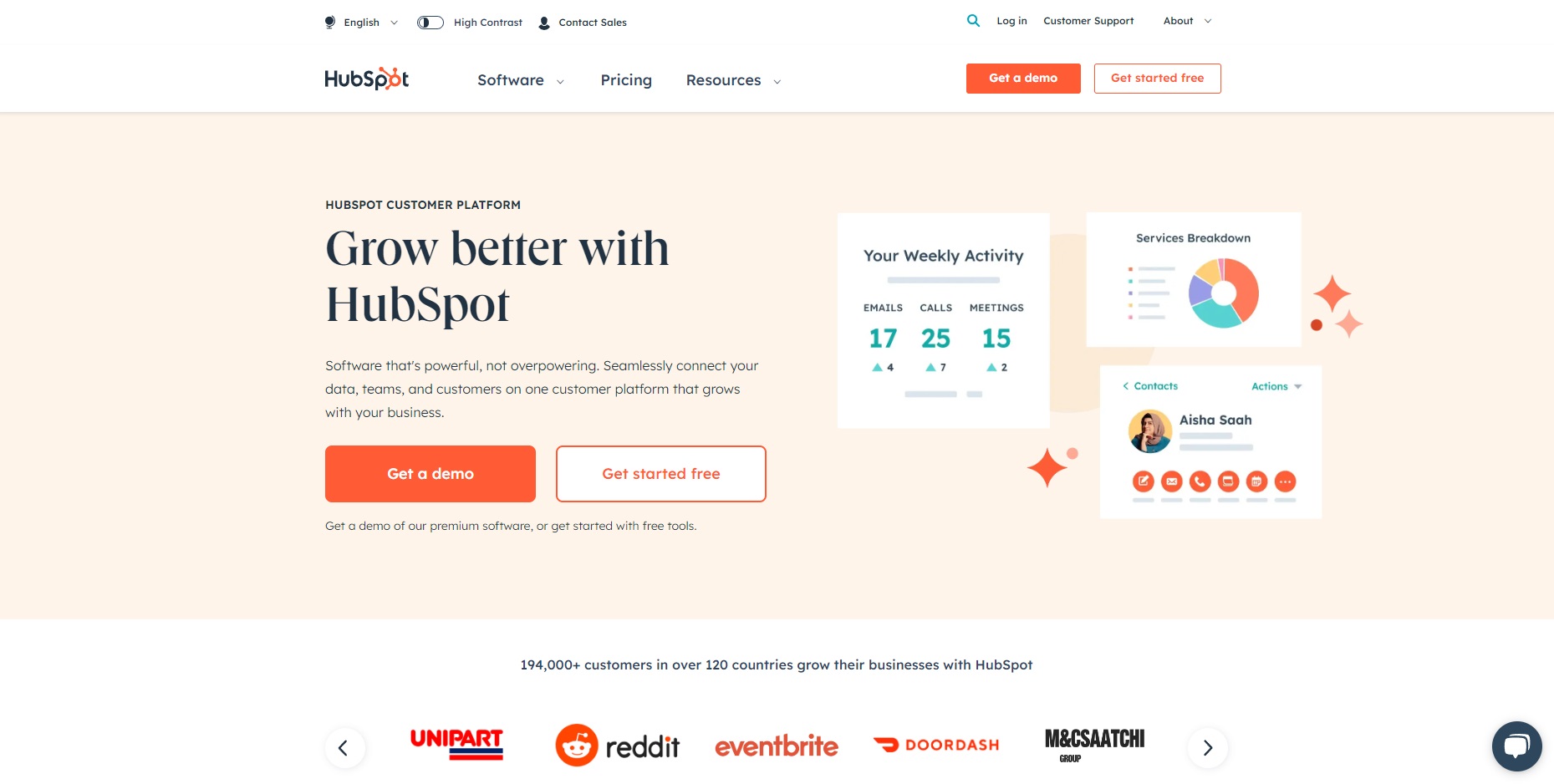
Key Features and Functionalities
✅ Email Automation:
- HubSpot’s email automation capabilities allow you to create targeted and personalized email campaigns based on customer behavior.
- Set up automated workflows to nurture leads, send follow-up emails, and engage with your audience throughout their journey.
✅ CRM Integration:
- HubSpot seamlessly integrates with its Customer Relationship Management (CRM) tool, enabling you to manage your contacts, track interactions, and gain a holistic view of your customer relationships.
- The integration ensures that your marketing and sales teams are aligned, facilitating a smoother overall customer experience.
✅ Personalization and Segmentation:
- Create highly personalized content with HubSpot’s segmentation and personalization features.
- Segment your audience based on various criteria, such as behavior, location, or interests, and tailor your messages to resonate with each group.
These are also a very solid set of features. Let’s explore the pros and cons of using Hubspot. I’ve made a table for this one as well so it’s easier to follow and understand:
| Feature | Pro | Con |
| All-in-one platform | Streamlines workflow | May be overwhelming for simple needs |
| Easy to use | Drag-and-drop interface | Learning curve for advanced features |
| Scalability | Grows with your business | Higher pricing for larger needs |
| Features | Extensive marketing and sales tools | Can be overwhelming for beginners |
| Reporting | Advanced insights and analytics | Can be complex to navigate |
| Support | Comprehensive resources and assistance | May require paid plans for premium support |
| CRM | Robust contact and deal management | Can be overkill for smaller businesses |
| SEO Tools | Comprehensive keyword research and optimization | May require additional SEO expertise |
| Marketing Automation | Powerful workflows and personalization | Requires planning and setup |
| Integrations | Integrates with numerous apps | Some key integrations may require additional fees |
| Pricing | Flexible plans based on needs | Can be expensive for smaller businesses |
Overall, HubSpot is a powerful and comprehensive platform that can be a valuable tool for businesses of all sizes. However, it is important to weigh the pros and cons carefully before deciding if it is right for you.
Pricing plans
HubSpot offers a tiered pricing structure for its email marketing tools. Here’s a breakdown of the different plans and their pricing:
Free Tools:
- Drag-and-drop email builder with pre-built templates
- Send up to 2,000 emails per month
- Basic email analytics
- Contact management tools
- Basic reporting and insights
Starter:
- Starts at $20 per month (or $216/yr)
- Includes all features of the free plan, plus:
- Send up to 10,000 emails per month
- A/B testing
- Marketing automation features
- Lead scoring
- Landing page builder
- Chatbot builder
- Forms builder
- Reporting and insights dashboards
- Custom email templates
Professional:
- Starts at $890 per month (or $9,600/yr)
- Includes all features of the Starter plan, plus:
- Send up to 20,000 emails per month
- Advanced email analytics
- Website traffic reporting
- Social media monitoring
- Predictive lead scoring
- Sales tools
- Custom reporting and dashboards
- App Marketplace access
To see a more detailed breakdown of Hubspot’s pricing plans and what they offer, go have a look at their pricing page.
Choosing the right solution for your business
Choosing between Constant Contact and HubSpot requires careful consideration of your specific business needs and goals. 🤔
Here are some questions to ask yourself:
- What are my marketing goals?
- Do I need an all-in-one solution?
- How user-friendly do I need the platform to be?
- What is my budget?
- What level of customization do I need?
- How important is automation to my strategy?
- What kind of customer support do I need?
- Does my business require CRM functionality?
- Am I planning to scale my marketing efforts?
- Have I explored trial periods or demos?
By answering these questions, you’ll gain a clearer understanding of your specific requirements and which platform, Constant Contact or HubSpot, is better suited to meet your business needs.

F.A.Q.
Constant Contact is mainly centered on email marketing, providing an easy-to-use platform for customizable templates, contact management, and analytics. In contrast, HubSpot offers a comprehensive, all-in-one solution that goes beyond email marketing to include CRM, marketing automation, sales, and customer service.
Constant Contact provides a 60-day trial period, allowing sufficient time for users to thoroughly explore its features and functionalities before deciding on a paid subscription.
HubSpot has earned a reputation as the leading CRM, attributed to its inclusive set of tools that seamlessly blend marketing, sales, and customer service functionalities. The platform’s ease of use, sophisticated automation features, and powerful analytics collectively empower businesses to effectively navigate and oversee the entirety of their customer journey.
Constant Contact proves to be an optimal selection for both businesses and individuals whose primary requirement is an email marketing platform that is both user-friendly and cost-effective.
HubSpot and Constant Contact don’t have a native integration, but there are two ways to connect them and share data between them:
– through Zapier
– Data Sync by Hubspot
Wrapping up…
Choosing the right email marketing software is pivotal to the success of your campaigns and, consequently, your business. That being said, let’s quickly recap the key takeaways:
Who should choose Constant Contact?
- Small businesses and solopreneurs
- Businesses with a limited budget
- Businesses that primarily need email marketing functionality
- Businesses that are not familiar with marketing automation or CRM platforms
Who should choose HubSpot Marketing Hub?
- Businesses of all sizes
- Businesses with a growing marketing team and complex needs
- Businesses that want a comprehensive all-in-one marketing platform
- Businesses that want advanced marketing automation and CRM functionality
- Businesses that are serious about SEO and social media marketing
Constant Contact is a good option for small businesses and solopreneurs who primarily need email marketing functionality. It is easy to use and affordable, but it lacks the advanced features and scalability of HubSpot Marketing Hub.
HubSpot Marketing Hub is a more comprehensive all-in-one marketing platform that is suitable for businesses of all sizes. It offers a wider range of features, including marketing automation, CRM, SEO tools, and social media management. However, it is more expensive than Constant Contact and requires a longer onboarding process.
Ultimately, the best platform for your business depends on your specific needs and budget. I recommend trying both platforms to see which one is right for you 😉

